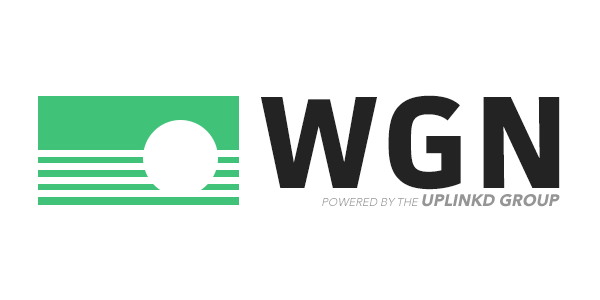If you are a golf fan you may have heard about the ongoing Senate hearing regarding Saudi Arabia’s involvement in professional golf.
The hearing took place on Wednesday, September 13th was intended to examine the Public Investment Fund’s (PIF) move into the sport and other U.S.-based investments.
It was expected to include representatives from the PGA Tour, LIV Golf, and PIF however none of these officials were in attendance.
Senator Richard Blumenthal of Connecticut led the hearing which was organized by the Senate’s Permanent Subcommittee on Investigations. The subcommittee has been investigating Saudi Arabia’s involvement in professional golf since last year with a particular focus on the PIF’s investment in the sport.
The PIF has been involved in several high-profile deals in recent years including the purchase of a majority stake in LIV Golf and a partnership with the PGA Tour to create a new event in Saudi Arabia.
Despite the absence of PGA Tour, LIV Golf and PIF officials the hearing still provided valuable insights into the ongoing investigation.
Witnesses included experts in finance and international relations as well as representatives from human rights organizations. The hearing also included a discussion of the broader implications of Saudi Arabia’s involvement in professional sports, particularly in light of the country’s human rights record.
The Senate Judiciary Committee Hearing
On September 12, 2023 the Senate Judiciary Committee held a hearing regarding the “No Tour Wed” controversy. The hearing was chaired by Senator Richard Blumenthal and Senator Amy Klobuchar. The hearing aimed to investigate the issue and find a solution that would benefit both artists and fans.
Witnesses
The hearing featured several witnesses who testified about their experiences with the “No Tour Wed” policy. Among them were concert promoters, ticketing industry representatives, and music industry experts. The witnesses provided their insights on the impact of the policy on the industry and the reasons behind it.
Testimony
The testimony of the witnesses shed light on the reasons behind the “No Tour Wed” policy. The witnesses explained that the policy was implemented to prevent artists from overworking themselves and to ensure that they have enough time to rest and recover. They also noted that the policy was designed to reduce the number of shows on weekdays which are less popular among fans.
The witnesses also discussed the impact of the policy on the industry. They noted that the policy has resulted in a decrease in revenue for the industry and has caused disappointment among fans who were looking forward to attending concerts on Wednesdays.
The hearing schedule was as follows:
- Opening statements by Senator Blumenthal and Senator Klobuchar
- Testimony by witnesses
- Question and answer session with the witnesses
- Closing statements by Senator Blumenthal and Senator Klobuchar
Overall the hearing was informative and provided valuable insights into the “No Tour Wed” policy. The witnesses provided their perspectives on the issue, and the senators had the opportunity to ask questions and clarify their understanding of the matter.
The Issue of Monopoly
When it comes to the live music industry Ticketmaster’s dominance is undeniable. The company’s parent, Live Nation Entertainment, has been accused of using its monopoly power to dominate the ticketing and live events industry. This issue was brought to the forefront during a Senate Judiciary hearing on January 24, 2023 where Ticketmaster was cast as a powerful “monopoly” by committee members from both parties.
Ticketmaster’s Dominance
Ticketmaster’s dominance in the live music industry has been a topic of discussion for years. The company controls an estimated 80% of the ticketing market, making it the dominant player in the industry. This dominance has allowed Ticketmaster to charge high fees to consumers and control the distribution of tickets to concerts and other events.
Consolidation in the Ticketing Industry
The lack of competition in the ticketing industry has been a major issue for consumers. The industry has seen a significant amount of consolidation in recent years with Ticketmaster acquiring several of its competitors. This consolidation has led to a lack of competition and a lack of choice for consumers.
Anti-competitive Practices
Ticketmaster has been accused of engaging in anti-competitive practices to maintain its dominant position in the market. For example: the company has been accused of using exclusive contracts to prevent venues from working with other ticketing companies. This has made it difficult for competitors to enter the market and has limited consumer choice.
The issue of monopoly in the ticketing industry is an antitrust issue that has been brought to the attention of the American Antitrust Institute. Antitrust laws are designed to promote competition and prevent companies from engaging in anticompetitive practices. The issue of Ticketmaster’s dominance in the ticketing industry is a clear example of why antitrust laws are necessary to protect consumers from dominant players in the market.
In conclusion, the issue of monopoly in the ticketing industry is a complex issue that requires careful consideration. Ticketmaster’s dominance, consolidation in the ticketing industry, and anti-competitive practices are all factors that contribute to the lack of competition in the market. It is important for lawmakers and regulators to take action to promote competition and protect consumers from anti-competitive practices.
The Role of Artists
Artists play a crucial role in the live entertainment industry. They are the ones who bring their creativity and talent to the stage and their performances are what attract fans to concerts and events. In recent years artists have become increasingly vocal about their concerns regarding the ticketing industry and the impact it has on their fans.
Taylor Swift’s Stance
Taylor Swift – the popular singer-songwriter – has been a vocal critic of the ticketing industry. In 2018, she spoke out against Ticketmaster’s Verified Fan program which she believed was not effective in preventing scalpers from buying up tickets to her concerts. She also expressed her frustration with the high fees that fans are charged when purchasing tickets.
Swift’s latest album, “All Too Well,” includes lyrics that seem to be a commentary on her experiences with the ticketing industry. In the song “Nightmare Dressed Like a Daydream,” she sings, “And the ticket you bought me is now just paper / Good for nothing but taking up space.”
Pearl Jam’s Opposition
Pearl Jam is another band that has been vocal about their opposition to the ticketing industry. In 1994 they boycotted Ticketmaster after they believed the company was monopolizing the industry and charging excessive fees. The band went on to file a lawsuit against Ticketmaster accusing the company of anti-competitive practices.
Today, Pearl Jam continues to advocate for fair ticketing practices. They have worked with organizations like the Fan Freedom Project to raise awareness about the impact of the ticketing industry on fans and artists.
In conclusion, artists have an important role to play in the live entertainment industry, and their voices should be heard when it comes to issues like ticketing. Taylor Swift and Pearl Jam are just two examples of artists who have used their platform to advocate for change. By working together, artists, fans, and industry leaders can create a more fair and transparent ticketing system.
The Impact on Consumers
The Senate hearing on Wednesday will examine Saudi Arabia’s move into professional golf and other U.S.-based investments through its Public Investment Fund. But what does this mean for you as a consumer? Here are some potential impacts:
Service Fees
One of the main issues that consumers face when purchasing tickets is service fees. These fees can be a significant portion of the ticket price, and consumers often feel like they’re being taken advantage of. While the Senate hearing may not directly address this issue it could lead to increased scrutiny of ticketing companies and their pricing practices.
Secondary Market
Another issue that consumers face is the secondary market for tickets. This market is where tickets are resold by individuals or companies other than the original ticket seller. While this can be a great way to get tickets for sold-out events it also comes with risks. Ticket scalpers often charge exorbitant prices for tickets and there is no guarantee that the tickets are legitimate. The Senate hearing could potentially address these issues and provide more consumer protections for those who purchase tickets on the secondary market.
Resale Issues
Finally, the Senate hearing may also address resale issues. Some ticketing companies have policies that prohibit the resale of tickets while others allow it but charge additional fees. This can be frustrating for consumers who want to sell their tickets if they can no longer attend an event. The hearing could potentially address these issues and provide more clarity on consumer rights when it comes to secondary sales.
In conclusion, while the Senate hearing may not directly impact consumers, it could lead to increased scrutiny of ticketing companies and their practices. This could potentially lead to more consumer protections and a better overall experience for those who purchase tickets.
Legislative Responses
The Senate hearing on Wednesday will examine Saudi Arabia’s move into professional golf and other U.S.-based investments through its Public Investment Fund. This hearing is part of a larger conversation about government intervention and better oversight of secondary sales and accountability in concert ticketing. Here are some legislative responses that have been proposed to address these issues.
The BOSS Act
The Better Oversight of Secondary Sales and Accountability in Concert Ticketing (BOSS Act) was introduced in Congress in 2019. The BOSS Act aims to increase transparency and accountability in the ticketing industry by requiring ticket sellers to disclose the number of tickets available for sale, the face value of the tickets, and any fees associated with the sale. It also prohibits the use of “bot” software to purchase tickets and resell them at inflated prices.
Antitrust Laws and DOJ
Antitrust laws are designed to promote competition and prevent monopolies in the marketplace. The Department of Justice (DOJ) is responsible for enforcing these laws and investigating antitrust violations. In the context of the ticketing industry, antitrust laws could be used to prevent ticket sellers from engaging in anti-competitive practices, such as price-fixing or exclusive deals with certain venues.
In conclusion, there are several legislative responses that have been proposed to address the issues of government intervention and better oversight of secondary sales and accountability in concert ticketing. The BOSS Act and antitrust laws are just two examples of how lawmakers and regulators are working to promote transparency and competition in the ticketing industry.
The Role of Competitors
When it comes to the ticketing industry, Ticketmaster has been the dominant player for years. However, in recent years, competitors have emerged to challenge Ticketmaster’s dominance. In this section, we will take a closer look at two of Ticketmaster’s competitors: SeatGeek and Jam Productions.
SeatGeek
SeatGeek is one of the most well-known competitors to Ticketmaster. The company was founded in 2009 and has quickly become a popular alternative to Ticketmaster. SeatGeek’s business model is based on aggregating tickets from various sources and presenting them to consumers in an easy-to-use platform. The company has gained a reputation for being transparent about fees and offering a seamless user experience.
SeatGeek has also been praised for its customer service. The company has a team of experts who are available 24/7 to help customers with any issues they may encounter. This level of customer service has helped SeatGeek build a loyal customer base and gain traction in the ticketing industry.
Jam Productions
Jam Productions is a Chicago-based company that has been in the live entertainment industry for over 40 years. The company was founded by Jerry Mickelson and has since become one of the largest independent concert promoters in the United States. Jam Productions has a reputation for being a fierce competitor to Ticketmaster and has been vocal about the need for more competition in the ticketing industry.
One of the ways that Jam Productions has challenged Ticketmaster’s dominance is by partnering with other ticketing companies. For example, the company has partnered with AXS to sell tickets for events at the United Center in Chicago. By partnering with other companies, Jam Productions has been able to offer consumers more options when it comes to buying tickets.
Overall, while Ticketmaster has been the dominant player in the ticketing industry for years, competitors like SeatGeek and Jam Productions are starting to gain traction. These companies offer consumers more options and are challenging Ticketmaster’s monopoly on the industry.
The Global Perspective
Saudi Arabia’s Public Investment Fund
The involvement of Saudi Arabia’s Public Investment Fund (PIF) in professional golf has been a topic of discussion in recent years. The PIF is a sovereign wealth fund that manages the assets of the Saudi Arabian government and has been making significant investments in various industries around the world. One of its investments was in the sport of golf, with the creation of the Saudi Golf Federation and the hosting of the Saudi International tournament.
The PIF’s involvement in golf has raised concerns among some individuals and organizations, particularly due to Saudi Arabia’s human rights record and the murder of journalist Jamal Khashoggi. The PIF’s chairman, Yasir Al-Rumayyan, has faced criticism for his role in the murder, as he was on the board of the company that owned the plane used to transport Khashoggi’s body.
PGA Tour-LIV Deal
Another aspect of the Senate hearing is the PGA Tour’s partnership with LIV Golf – a new professional golf league backed by the Saudi Arabian Public Investment Fund. The PGA Tour’s COO, Ron Price, revealed during the hearing that the Tour had entered into a “strategic alliance” with LIV Golf, which includes the sharing of resources and expertise.
This partnership has also faced criticism from some individuals and organizations who argue that the PGA Tour should not be associating with a league that is backed by the PIF. The partnership has also raised questions about the future of professional golf with some speculating that the PGA Tour and LIV Golf could eventually merge into one global league.
Overall, the involvement of Saudi Arabia and its Public Investment Fund in professional golf has sparked debate and controversy. The Senate hearing is just one example of the ongoing discussion around this issue, and it remains to be seen what impact it will have on the sport in the future.
Frequently Asked Questions
What is the Senate hearing about?
The Senate hearing scheduled for Wednesday, September 13, 2023, is about Saudi Arabia’s move into professional golf and other U.S.-based investments through its Public Investment Fund. The hearing will examine the impact of Saudi Arabia’s investments on the U.S. economy and national security.
Will the Senate hearing affect the U.S. Open qualifiers?
There is no indication that the Senate hearing will affect the U.S. Open qualifiers. The U.S. Open is organized by the United States Golf Association (USGA), which is a separate entity from the PGA Tour, LIV Golf, and the Public Investment Fund.
Is Pine Tree hosting any U.S. Open qualifiers?
There is no information available indicating that Pine Tree is hosting any U.S. Open qualifiers. The USGA typically announces the host sites for U.S. Open qualifiers several months in advance of the event.
What is the PGA LIV union?
The PGA LIV union is a labor organization that represents professional golfers who compete on the PGA Tour and LIV Golf. The union negotiates collective bargaining agreements with the PGA Tour and LIV Golf on behalf of its members.
How will the Senate hearing impact the PGA LIV union?
It is unclear how the Senate hearing will impact the PGA LIV union. The union has not released any statements regarding the hearing, and it is not clear if the union will be represented at the hearing.
Are there any changes to the tour schedule due to the Senate hearing?
There are no changes to the tour schedule due to the Senate hearing. The PGA Tour and LIV Golf have not announced any cancellations or postponements of upcoming events. However, it is possible that the Senate hearing could impact the tour schedule in the future, depending on the outcome of the hearing and any subsequent actions taken by the PGA Tour and LIV Golf.




